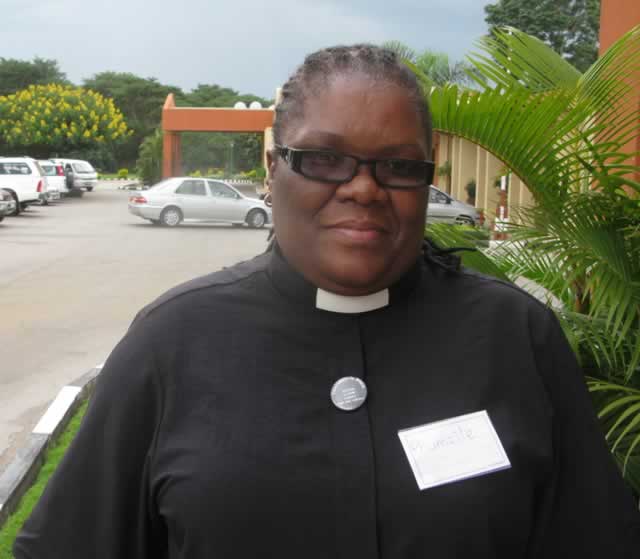Why men shy away from clinics

Speaking to several people who access ARVs from the centre one peculiar aspect stood out.
The hospital, which acts as a referral centre, transfers a patient (if one has no complications) after a year to access ARVs from their nearest health centre but some people keep coming back.
Could it be the good service they get that they opt to use the hospital rather than their nearest health facilities? The sister-in-charge of the OI clinic is very efficient and warm hearted that in spite of the other bottlenecks, one is inclined to keep using the centre.
The first woman I asked (Mai Samantha from Mufakose) said she would never dream of being transferred to her local clinic as she risked having the community awash with the news that she was on ARVs.
“I have used this hospital for three reasons. I am assured of getting two months’ supply on each visit. I can also get some ARVs for my husband. He dares not visit, he does not like the congestion. I pick up his medication,” said Mai Samantha.
On being asked if her husband did not risk compromising his health since he did not see the doctor after six months as required, she said he was not bothered.
“Baba Samantha only visited this hospital on three occasions when I was expecting. I tested HIV positive in 2009 during routine testing at the antenatal clinic. I informed him and told him that the hospital required that we visit as a couple.
“He was tested at the antenatal unit just a stone’s throw away and he too tested HIV positive. Both our CD4 counts were very low – around 180, but we were not sick and since I was expecting I was commenced on ART without going through the waiting list,” she said.
“My husband was accorded the same privilege and we started ART before the birth of our baby in June the same year. The baby is HIV negative, thanks to the prevention of mother to child transmission programme. My husband has been here for counselling and when he had his CD4 count done, the last time was when he saw the doctor and was commenced on ART,” she said.
“My husband has vowed that he would never set foot here again so I have to collect his medication when I am collecting my mine. Luckily, he is well and has no complications so I collect on his behalf,” she said.
Asked why he detested visiting the hospital so much, she said he did not like the congestion and lack of privacy.
“He did not like sitting outside in public by that shed as we waited to have our files called out. He said it all smacked of discrimination. He did not like the attitude of some junior nurses who treated everyone at the OI with rudeness. He therefore vowed that when he was over with the necessary tests and was on ARVs he would never set foot at the OI again,” she said.
The OI clinic at Harare Hospital is housed at the old children’s physiotherapy centre next to the mortuary.
Olive Mtabeni, the founder of Life Empowerment Support Organisation, also castigated the location of OI clinics in most hospitals.
Speaking at World Aids Day in Mufakose last year, she said hospital administrators needed to treat HIV patients with the dignity they deserved and move OI clinics from the dilapidated buildings they occupy.
“The OI clinic is either in a dilapidated building or is next to a mortuary which surely speaks volumes of the way HIV is viewed. As people living positively, we have to fight this discrimination and have OIs moved to respectable units,” said Mtabeni..
Another woman who said her husband works as a truck driver was also collecting ARVs for him.
“My husband does not like coming here. In fact, he is busy as he works as a truck driver and most of the time he is out of the country. He cannot afford to spend the whole morning accessing ARVs so I collect on his behalf,” said the woman.
The system at the hospital’s OI clinic functions well. It is when one is through and has to wait for the OI pharmacy to open at 11am that one feels the delay.
“It really does not make any difference whether I come at 8 or 10am. Those who have been served at the OI clinic still have to wait as the OI pharmacy only opens at 11am. I do not know why we have to wait while other patients served at the main pharmacy do not have to wait as the pharmacy opens on time,” queried the woman.
Sure, the OI pharmacy at the hospital also serves the main hospital hence it delays opening times, as it has to meet the needs of those admitted first.
Could it be that men are financially secure as compared to women and so one would not find many of them at public institutions, accessing ARVs?
Is it to do with stigma that they would rather remain silent and die rather than queue in a public place like lambs to the slaughter? Men find accessing ARVs not as easy when compared to their women counterparts.
Mr Frank Guni of Zimbabwe Network of People Living Positively said the issue of accessibility is a cause of concern.
“Even accessing condoms is not easy, they are available in a supermarket but are they inaccessible. The moment I pick up some condoms everyone gives me a look, but I am buying them because I have a wife,” he once said.
It appears availability and accessibility are two different components which need to be addressed.








Comments